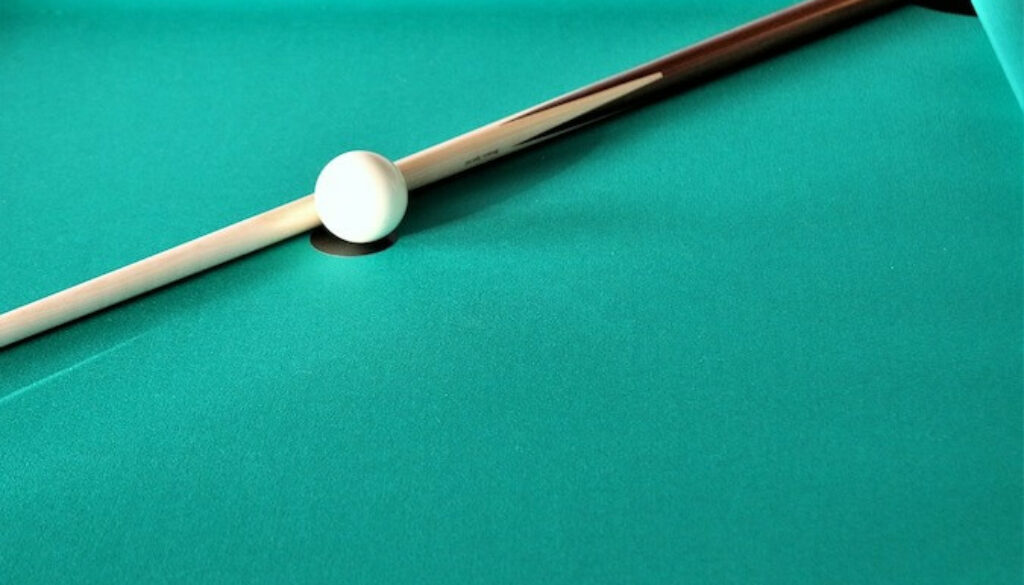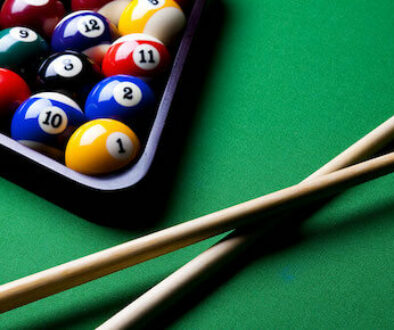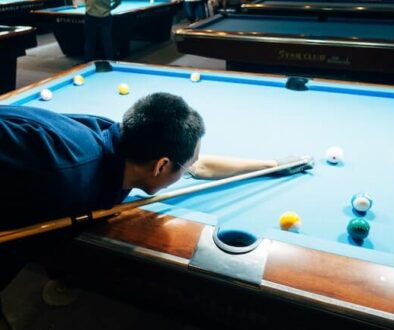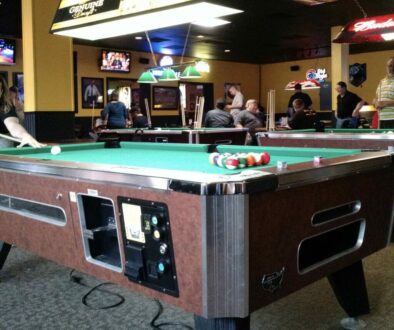Pool Cue Maintenance: Extend the Life of Your Pool Cue
With any investment, physical or not, we typically want to make sure we’re getting the most value of whatever that investment is. Pool cues are no different. The cue is the most important weapon in billiards.
With that in mind, it’s easy to understand why you must keep your pool cue in tip-top shape, especially if you want to continue getting better at pool.
In this article, we hope to help pool players of all ages and skill levels understand why the pool cue needs to be taken care of and what can happen if you don’t maintain your cue.
Ultimately, we will equip you with the knowledge and tools necessary to keep your cue in good condition, learn more about the pool cue and save money over the long run.
How Long Do Pool Cues Last?
If well taken care of, a pool cue can last 20, 40, even 100 years if the owner knows how to take care of it. They don’t last forever, but you can certainly get many years out of your cue if you know what you’re doing.
Now, we’ll go over several factors that can contribute to pool cues getting worn out sooner than expected.
Causes of Pool Cue Damage & Replacement
1. Wood Pool Cue Construction
Wood degrades much easier and faster than carbon fiber. Although many people prefer the price, feel, and character of a wood cue, it’s much more reactive to the atmosphere and temperature changes.
Wood has a tendency to expand and contract, making it much more prone to cracking. Wood is also much easier to scratch or dent due to it’s natural, softer material.
2. Lack of Care, Maintenance and Cleaning
Your pool cue will wear out fast if you are careless when handling the cue. Rubbing your cue up against hard surfaces or having a tendency to drop your cue on a hard floor can damage your cue, both aesthetically and functionally.
Forgetting to do things like chalking your cue tip, cleaning your pool cue shaft, cleaning your pool cue joint, and replacing old tips will speed up the wear and tear of your cue and cause you to spend more money on new cues down the road.
3. Playing Lots of Pool
It’s as simple as this – if you play a ton of pool, your cue will eventually get worn out. There really isn’t a way around it. If we wanted to keep our pool cues in pristine shape all the time, we would never get to play, and that’s definitely not what we want!
4. Cue Preference Changes
There are so many options for buying pool cues. It’s quite common to have one thing, see something better, then want that new thing even more. This phenomenon is definitely part of billiards too.
If you become stronger, you may want a firmer, heavier shaft. If you develop an eye for design, you may want a cue that has a prettier visual appeal. If you try a friend’s cue that helps you play more consistently, you may want to ditch your old one.
All this is normal, and should be considered when acquiring a new cue.
How to Take Care of a Pool Cue
Now, we’ll be providing some tips for taking care of your cue to ensure the maximum bang for your buck at the pool table.
1. Clean and Maintain Your Pool Cue Shaft
You can clean your pool cue shaft a number of different ways, but the most important thing to remember is to remove dirt initially, then follow up with something to keep your pool cue smooth and slippery.
To clean and remove dirt, simply use a slightly damp microfiber cloth or paper towel regularly, or buy a brand name cleaner that does not contain alcohol. Over time, alcohol will dry out your cue’s shaft and remove the natural oils that help keep it smooth.
Don’t be nervous about this step, it’s not rocket science. Both methods will achieve the same desired result – a clean pool cue!
If you want to buy a product made specifically for cue cleaning, look into the Predator REVO Shaft Wipes or the Smart Wipes Shaft and Ferrule Cleaner.
To smooth out and protect your cue’s shaft post-cleaning, you can first use a sanding/burnishing product to smooth out any imperfections in your cue. A couple good options are this Leather Burnishing Pad from PoolDawg or this Cue Cube Shaft Slicker. These products will help your cue feel silky smooth for an easier stroke.
It’s not required, but you can also apply wax to your pool cue’s shaft for an added seal and more protection. This will also give a little more shine to your cue. We recommend McDermott’s Silky Smooth Shaft Wax or the popular Q Wax.
2. Chalk Your Cue
Chalk adds a thin, extra layer of protection over the tip, but also helps the player make much better contact with the cue ball. You should chalk your pool cue at least every couple shots to help keep the tip in good shape for a long time
No one wants to waste money regularly replacing tips.
For more info on chalking, check out our recent article on pool cue chalk!
3. Wear a Glove When Playing
This recommendation just depends on a person’s preference, but there is something to be said about wearing a glove to help keep your cue in good condition.
Wearing a glove will often help improve the stroke, but it also prevents extra oils and dirt from your skin from building up on the shaft.
If you don’t like the look or feel of a glove, that’s fine, but be sure to make a habit of wiping down the shaft to clear off any build up from your bridge hand.
Billiard gloves are very basic and don’t have a bunch of technology, so don’t spend money that you don’t have on one. A very basic $5 glove will be just fine.
Here are some of the best billiards gloves on the market:
4. Use a Pool Cue Case
A cue case is a must have for any regular pool player. This is a key part of preventing cue damage. A case will shelter your cue and protect it from dust build up, extreme temperatures, and any damage it would incur if it was just laying around.
If you have nowhere to store and transport your pool cue, it isn’t going to last long.
Cue cases save so much space and make our lives as pool players a lot easier. Invest in a case for your pool cue or cues, and protect them when not in use.
Cue cases come in all kinds of shaft/butt storage combinations to ensure that no matter how many cues you have, there is a convenient option to store them. Here are some of the best cue cases available right now!
5. Buy a Cue Joint Protector
The pool cue joint is where the cue’s shaft connects to the butt of the pool cue. Since this is an open space when your cue is broken down, it has a tendency to attract dust and other particles.
Even if left uncovered in your cue case for a long period of time, it can still get dirty, which could lead to problems like a loose cue joint, a joint that doesn’t fully connect like it should, or a joint that becomes locked and impossible to disconnect.
A cue joint protector is the only method of protection for the butt’s pin on your pool cue. The protector is typically made from a heavy-duty plastic and will make sure the joint pin stays straight and is not exposed to any threats such as side contact that may knock the pin off center.
Check out the joint protector product pages from these online dealers:
6. Use More Than One Pool Cue
Using just one pool cue for all billiard purposes, including breaking and playing, increases the risk of faster cue wear and tear.
Diversifying your pool cue arsenal will help you maintain your cues longer, and can even improve your game if you’ve never tried cues specifically for breaking and non-breaking.
If you can manage it, we highly recommend playing with at least 2 cues to maximize the life of each cue. If you can afford multiple playing cues, and one break cue, even better!
Adding another cue not only allows you to play with a fresh cue for a long time, but helps you get more familiar with minute differences in cues and enhances your feel.
7. Replace the Pool Cue Tip
The pool cue tip is arguably the most important part of the cue. As pool players, we need to be able to rely on consistent cue ball contact so we know what to expect on the pool table.
Over time, the pool cue’s tip takes a beating, and will wear down with constant ball contact and chalking. A rule of thumb is to try and replace your tip every 6 months to 1 year. Of course, how often you play is also a factor.
Once your cue’s tip reaches about the thickness of a quarter, it’s time for a replacement. If you play with a softer tip, it will likely not last as long as a hard tip, and vice versa.
Some players prefer a fresher tip, and some prefer worn tips, so it really depends on what you are comfortable with if you’re trying to decide how often to replace.
Try to remember not to scuff and re-shape your tip too often. Doing this a lot will wear down your tip very fast, causing you to need a new tip. Since we’re talking about pool cue longevity, try to re-shape your cue’s tip only when necessary.
8. Replace the Cue Butt or Shaft, Not Both
This is strictly a tip for saving money and getting more value over a longer period. You don’t always have to buy an entire pool cue at one time.
If the shaft of your pool cue is more worn than the butt end, it’s perfectly okay to buy a new shaft only. If the butt is banged up, but the shaft is in great shape and you play well with it, you can replace the butt end of the cue.
9. Find Good Pool Cue Warranty Programs
One way to get a head start on getting the most value and playability out of your cue is buying a cue with a nice warranty.
Many pool cue manufacturers and dealers provide lifetime warranties to protect against normal wear and tear, mishandling, bad maintenance by other parties, and damage/warping caused by extreme temperatures or humidity.
Having a great warranty from the beginning will give you peace of mind at the pool table, and the comfort of knowing that if something goes wrong, you can likely get a replacement without much hassle.
Check out the warranty programs for these great cue brands below! This is not an exhaustive list, but includes some of the best warranties in the business.
Wrap Up
With time, you will become a lot more familiar with what it takes to keep your pool cue in good shape. For pool cues played super often, it’s unreasonable to expect to be able to play that cue for 50 years, but it is still possible!
Enjoy the time you have with your favorite cues, and welcome new cues into your life – it makes this sport even more fun.
Just be sure to treat your pool cues like you’d want to be treated – with respect!
I hope you found this article helpful and I look forward to providing more great billiard information and tips along the way.
Happy Shooting!




